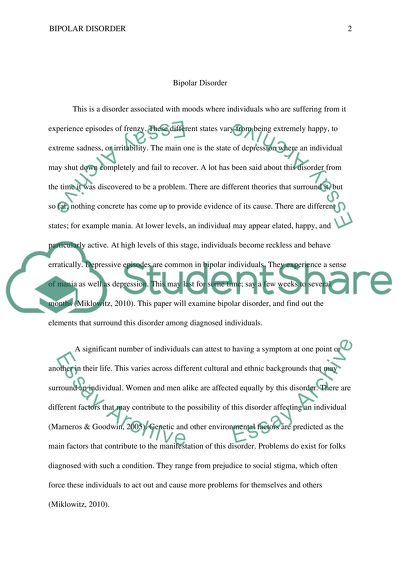Cite this document
(“Bipolar disorder Term Paper Example | Topics and Well Written Essays - 1000 words - 1”, n.d.)
Retrieved from https://studentshare.org/psychology/1479853-bipolar-disorder
Retrieved from https://studentshare.org/psychology/1479853-bipolar-disorder
(Bipolar Disorder Term Paper Example | Topics and Well Written Essays - 1000 Words - 1)
https://studentshare.org/psychology/1479853-bipolar-disorder.
https://studentshare.org/psychology/1479853-bipolar-disorder.
“Bipolar Disorder Term Paper Example | Topics and Well Written Essays - 1000 Words - 1”, n.d. https://studentshare.org/psychology/1479853-bipolar-disorder.


